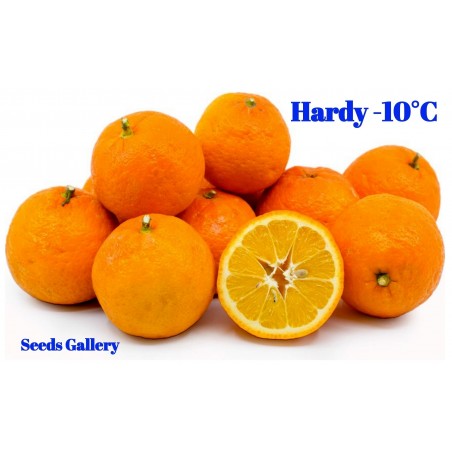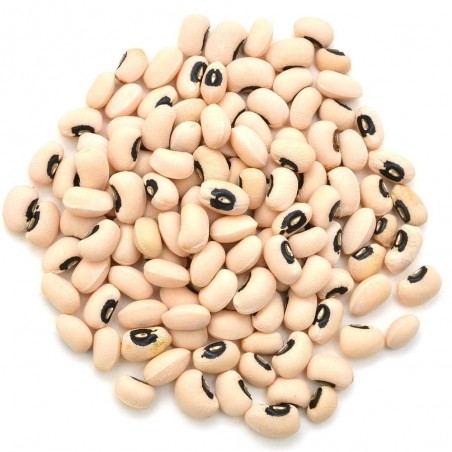
Common Ivy, English Ivy, European Ivy Seeds (Hedera helix)
Common Ivy, English Ivy, European Ivy Seeds (Hedera helix)
Price for Package of 10 seeds.
Hedera helix (common ivy, English ivy, European ivy, or just ivy) is a species of flowering plant in the family Araliaceae, native to most of Europe and western Asia. A rampant, clinging evergreen vine, it is a
Common Ivy, English Ivy, European Ivy Seeds (Hedera helix)
Price for Package of 10 seeds.
Hedera helix (common ivy, English ivy, European ivy, or just ivy) is a species of flowering plant in the family Araliaceae, native to most of Europe and western Asia. A rampant, clinging evergreen vine, it is a familiar sight in gardens, waste spaces, on house walls, tree trunks and in wild areas across its native habitat.
It is labeled as an invasive species in a number of areas where it has been introduced, particularly Washington, where it is labeled as a noxious weed, many parts of the eastern United States, and Oregon, where its sale or cultivation are banned.
Hedera helix is an evergreen climbing plant, growing to 20–30 m (66–98 ft) high where suitable surfaces (trees, cliffs, walls) are available, and also growing as groundcover where no vertical surfaces occur. It climbs by means of aerial rootlets with matted pads which cling strongly to the substrate. The ability to climb on surfaces varies with the plants variety and other factors: Hedera helix prefers non-reflective, darker and rough surfaces with near-neutral pH. It generally thrives in a wide range of soil pH with 6.5 being ideal, prefers moist, shady locations and avoids exposure to direct sunlight, the latter promoting drying out in winter.
The leaves are alternate, 50–100 mm (2–4 in) long, with a 15–20 mm (0.6–0.8 in) petiole; they are of two types, with palmately five-lobed juvenile leaves on creeping and climbing stems, and unlobed cordate adult leaves on fertile flowering stems exposed to full sun, usually high in the crowns of trees or the top of rock faces.
The flowers are produced from late summer until late autumn, individually small, in 3-to-5 cm-diameter (1.2-to-2.0 in) umbels, greenish-yellow, and very rich in nectar, an important late autumn food source for bees and other insects.
The fruit are purple-black to orange-yellow berries 6–8 mm (0.2–0.3 in) in diameter, ripening in late winter,[5] and are an important food for many birds, though somewhat poisonous to humans.
One to five seeds are in each berry, which are dispersed after being eaten by birds.
The three subspecies are:
H. h. helix
central, northern and western Europe, plants without rhizomes, purple-black ripe fruit
H. h. poetarum Nyman (syn. Hedera chrysocarpa Walsh)
southeast Europe and southwest Asia (Italy, Balkans, Turkey), plants without rhizomes, orange-yellow ripe fruit
H. h. rhizomatifera McAllister
southeast Spain, plants rhizomatous, purple-black ripe fruit
The closely related species Hedera canariensis and Hedera hibernica are also often treated as subspecies of H. helix,[8][10] though they differ in chromosome number so do not hybridise readily.[7] H. helix can be best distinguished by the shape and colour of its leaf trichomes, usually smaller and slightly more deeply lobed leaves and somewhat less vigorous growth, though identification is often not easy.
Range
It ranges from Ireland northeast to southern Scandinavia, south to Portugal, and east to Ukraine and Iran and northern Turkey.
The northern and eastern limits are at about the −2 °C (28 °F) winter isotherm, while to the west and southwest, it is replaced by other species of ivy. Hedera helix itself is much more winter-hardy and survives temperatures of −23.3 °C (−9.9 °F) (USDA Zone 6a) and above.
Cultivation and uses
The ivy is widely cultivated as an ornamental plant. Within its native range, the species is greatly valued for attracting wildlife. The flowers are visited by over 70 species of nectar-feeding insects, and the berries eaten by at least 16 species of birds. The foliage provides dense evergreen shelter, and is also browsed by deer.
In Europe, it is frequently planted to cover walls and the government recommends growing it on buildings for its ability to cool the interior in summer, while providing insulation in winter, as well as protecting the covered building from soil moisture, temperature fluctuations and direct exposure to heavy weather. Further uses include weed suppression in plantings, beautifying unsightly facades and providing additional green by growing on tree trunks.
Over 30 cultivars have been selected for such traits as yellow, white, variegated (e.g. 'Glacier'), and/or deeply lobed leaves (e.g. 'Sagittifolia'), purple stems, and slow, dwarfed growth.
Ethnomedical uses
Ivy extracts are part of current cough medicines. In the past, the leaves and berries were taken orally as an expectorant to treat cough and bronchitis. In 1597, the British herbalist John Gerard recommended water infused with ivy leaves as a wash for sore or watering eyes.[30] The leaves can cause severe contact dermatitis in some people. People who have this allergy (strictly a type IV hypersensitivity) are also likely to react to carrots and other members of the Apiaceae as they contain the same allergen, falcarinol.
Use as building facade green
As with any self-climbing facade green, some care is required to make best use of the positive effects: Ivy covering the walls of an old building is a familiar and often attractive sight. It has insulating as well as weather protection benefits, dries the soil and prevents wet walls, but can be problematic if not managed correctly.
Ivy, and especially European ivy (H. helix) grows vigorously and clings by means of fibrous roots, which develop along the entire length of the stems. These are difficult to remove, leaving an unsightly "footprint" on walls, and possibly resulting in expensive resurfacing work. Additionally, ivy can quickly invade gutters and roofspaces, lifting tiles and causing blockages. It also harbors mice and other unwelcome creatures. The plants have to be cut off at the base, and the stumps dug out or killed to prevent regrowth.
Therefore, if a green facade is desired, this decision has to be made consciously, since later removal would be tedious.
| HEIRLOOM ? | Yes |
|---|---|
| Organic Seeds ? | Organic Seeds |
| Perennial ? | Perennial plant : Yes |
| Resistant to cold and frost ? | Cold resistant: to −30 °C |
| Zbierane ręcznie nasiona? | Ręcznie zbierane nasiona |
| Manufacturer ? | Manufacturer: Seeds Gallery |
| Medicinal Plant ? | Medicinal Plant: Yes |


Chwilowo nie możesz polubić tej opinii
Zgłoś komentarz
Zgłoszenie wysłane
Twoje zgłoszenie nie może zostać wysłane
Napisz swoją opinię
Recenzja została wysłana
Twoja recenzja nie może być wysłana
🌍 Wysyłka na cały świat z UE
Wysyłamy zamówienia na cały świat z Unii Europejskiej za pośrednictwem poczty poleconej z potwierdzeniem odbioru.
📦 Śledzenie przesyłki
Aby śledzić przesyłkę, zaloguj się na swoje konto i przejdź do sekcji Historia zamówień > Szczegóły, gdzie znajdziesz numer śledzenia.
Śledzenie międzynarodowe: 17Track
Dla numerów takich jak RGxxxxxxHR: Śledzenie Posta.hr
🕒 Uwaga: informacje o śledzeniu pojawią się dopiero po 24 godzinach od nadania.
⚠️ Ważne uwagi
Płatność za pobraniem nie jest możliwa.
Sprawdzaj folder SPAM / Niechciane w swojej skrzynce e-mail, aby nie przegapić powiadomień.
Korzystaj wyłącznie z formularza kontaktowego na naszej stronie.
Wiadomości wysłane bezpośrednio na e-mail mogą nie zostać odebrane.
📱 Numer telefonu wymagany
Podczas składania zamówienia koniecznie podaj numer telefonu komórkowego z kodem kraju.
Przykład: +48 123 456 789
🚚 Warunki dostawy
Dla przesyłek poleconych wymagany jest podpis odbiorcy (osoby, do której adresowana jest paczka).
Nie zamawiaj, jeśli:
chcesz, aby paczka została dostarczona do skrzynki pocztowej
nie będzie Cię w domu w czasie doręczenia
chcesz, by paczka została zostawiona u sąsiada (❌ to niemożliwe)
📬 Podanie adresu skrzynki pocztowej oznacza utratę prawa do zwrotu w razie zagubienia przesyłki.
↩️ Zwrot paczki i ponowna wysyłka
Jeśli paczka zostanie zwrócona do nas z jakiegokolwiek powodu:
Pokrywasz koszt zwrotu 2 €
Oraz koszt ponownego nadania
⏱ Opóźnienia i śledzenie
Jeśli śledzenie wskazuje, że paczka wciąż jest „u nadawcy”, oznacza to, że jest w transporcie.
Skontaktuj się z lokalnym urzędem pocztowym, podając numer śledzenia.
Nie jesteśmy firmą kurierską – nie mamy możliwości monitorowania przesyłek za klientów.
Nie ponosimy odpowiedzialności za czas dostawy.
🔍 Reklamację zagubionej paczki możemy rozpocząć dopiero po 30 dniach od daty wysyłki.
✈️ Opcje wysyłki
| Typ wysyłki | Czas realizacji | Ubezpieczenie | Możliwe opóźnienie | Uwagi |
|---|---|---|---|---|
| Standardowa | 7–10 dni roboczych | ❌ | 7–14 dni | Najtańsza opcja |
| Priorytetowa | 1–7 dni roboczych | ❌ | 3–10 dni | Zamówienie przetwarzane priorytetowo, ale nie szybciej |
| Ubezpieczona | 1–7 dni roboczych | ✅ | 3–10 dni | Zwrot kosztów w przypadku zagubienia paczki (do 150 €) |
🕒 Szacowany czas dostawy:
W obrębie Unii Europejskiej: 3–20 dni roboczych
Globalnie: 5–30 dni roboczych
Przykładowe dostawy do USA: 27, 22, 19, 17, 13 dni
💳 Metody płatności
💶 Przelew bankowy (SEPA / IBAN / SWIFT-BIC)
W opisie przelewu koniecznie podaj numer zamówienia (np. SGS-19811702).
Brak opisu może spowodować opóźnienie lub anulowanie zamówienia.
Jeśli płatność nie zostanie zaksięgowana w ciągu 7 dni – zamówienie zostanie anulowane.
🅿️ PayPal
Akceptujemy płatności wyłącznie w euro.
Ustaw walutę na euro podczas płatności.
💳 Karta płatnicza
Płatności kartą odbywają się przez naszą stronę: Exotic Seeds Store
Akceptujemy: Visa, MasterCard, American Express, Diners Club, UnionPay, JCB, Discover i inne.
💡 Klient ponosi wszelkie opłaty transakcyjne.
Aby przyspieszyć realizację zamówienia, prześlij potwierdzenie przelewu.
📅 Dodatkowe uwagi
Nie przetwarzamy zamówień ani nie wysyłamy paczek w soboty i niedziele.
Przed złożeniem zamówienia sprawdź ogłoszenia na naszej stronie (np. przerwy świąteczne lub specjalne warunki).
📫 Uwaga:
Nie wysyłaj wiadomości e-mail. Używaj wyłącznie formularza kontaktowego dostępnego na naszej stronie.
Related Products

































